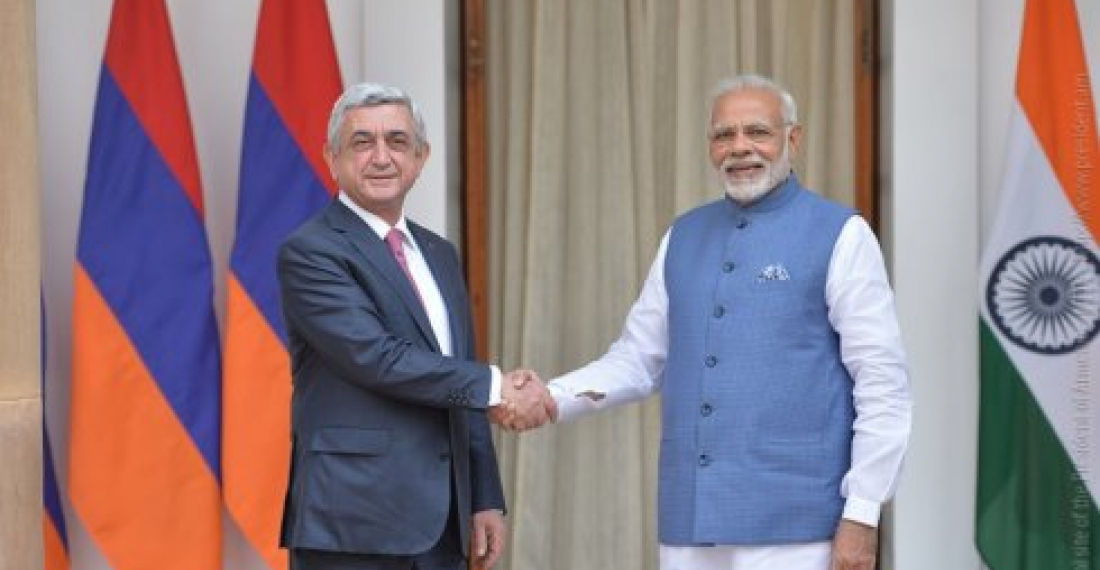President Serzh Sargsyan, currently on a visit to India, met with Prime Minister Narendra Modi in New Delhi.
The Prime Minister of India noted that Armenia is a reliable and important partner for India in the Eurasian area. In his words, Armenian merchants were among the first to come to India and boost commercial ties between India and different countries, the press service of the Armenian President reports.
President Sargsyan noted that the deeply rooted friendly relations between Armenia and India provide a solid basis for developing interstate relations between the two countries. The President of Armenia expressed the hope that his visit would give new impetus to the Armenian-Indian centuries-old friendship.
Sargsyan said Armenia is ready to offer favorable conditions for Indian companies and drew the attention of the Indian side to the free economic zone, being established in Meghri on the border with Iran, which can become an effective platform for cooperation. According to President Sargsyan, Armenia's accession to the EAEU may facilitate friendly India's access to the huge Eurasian market.
During the meeting, the sides touched upon the emerging opportunities for closer interaction and exchange of experience in a wide range of areas of mutual interest, such as jewelry, diamond processing, pharmaceuticals, film production information technologies, agriculture, food processing, tourism, education, science and culture.
President Serzh Sargsyan and Prime Minister Narendra Modi noted with satisfaction that the two countries are engaged in active cooperation in the multilateral format, which is best evidenced by the readiness for mutual assistance in international organizations. Reference was made to the situation and the challenges faced in the South Caucasian region, including the negotiations over a peaceful settlement of the Nagorno-Karabakh conflict, the press service of the Armenian president said.
President Sargsyan was in India participating in the event "World Food India".
source: commonspace.eu with the press service of the Armenian President
picture: The President of Armenia and the Prime Minister of India at their meeting in New Delhi on 3 November 2017. (picture courtesy of the press service of the president of Armenia).







